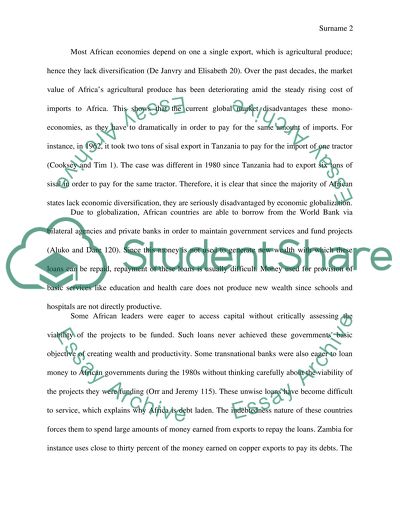Cite this document
(“Poverty and how it links to globalization (Africa) Research Paper”, n.d.)
Retrieved from https://studentshare.org/social-science/1695961-poverty-and-how-it-links-to-globalization-africa
Retrieved from https://studentshare.org/social-science/1695961-poverty-and-how-it-links-to-globalization-africa
(Poverty and How It Links to Globalization (Africa) Research Paper)
https://studentshare.org/social-science/1695961-poverty-and-how-it-links-to-globalization-africa.
https://studentshare.org/social-science/1695961-poverty-and-how-it-links-to-globalization-africa.
“Poverty and How It Links to Globalization (Africa) Research Paper”, n.d. https://studentshare.org/social-science/1695961-poverty-and-how-it-links-to-globalization-africa.


